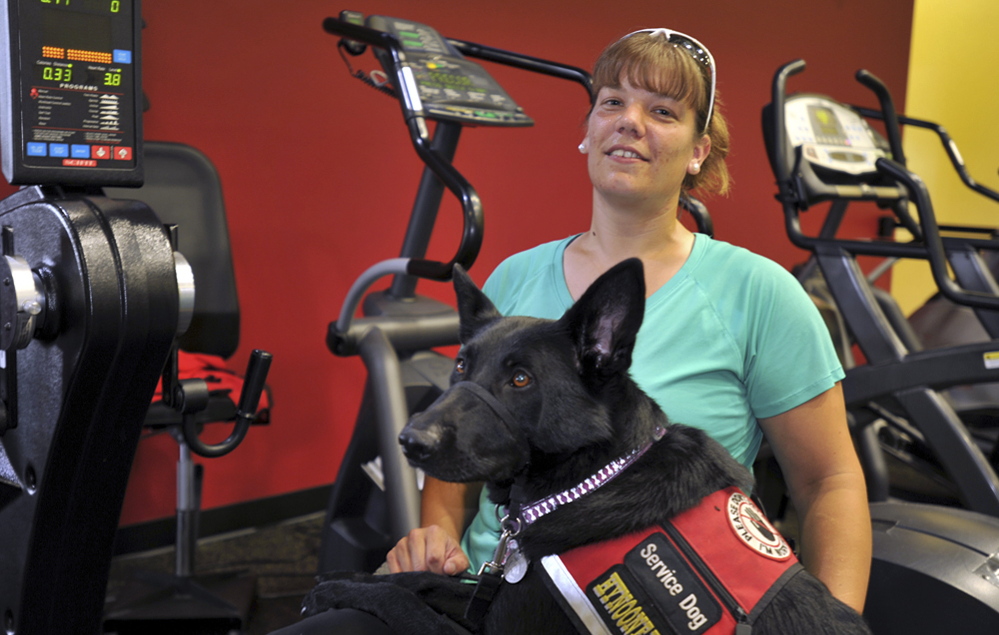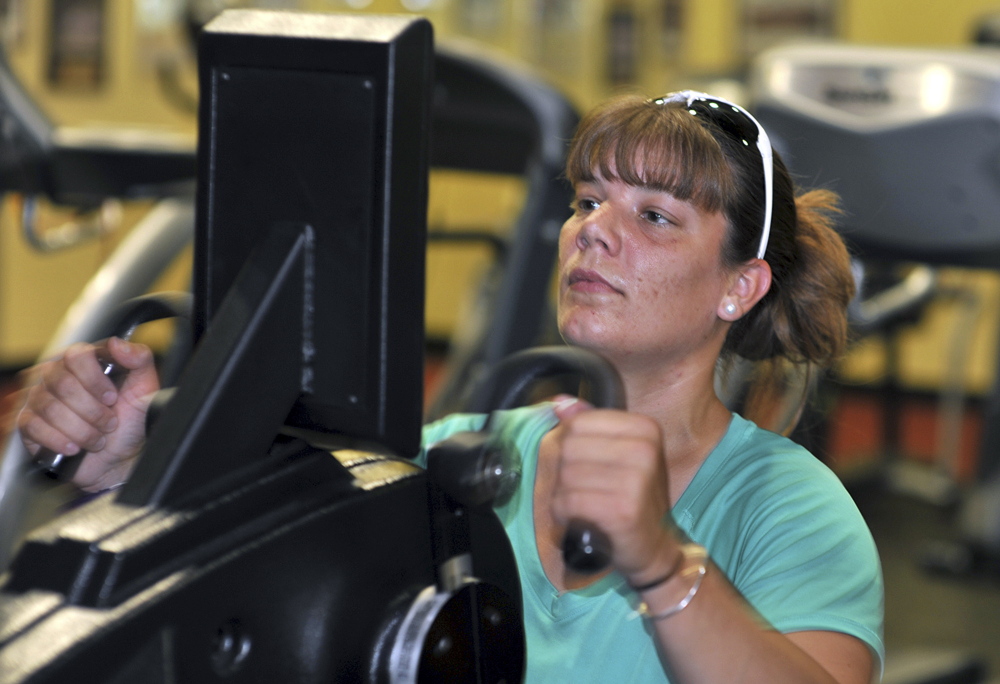EAST FALMOUTH, Mass. — As soon as the oars hit the water and the race started, Beth Noll headed over to the coaches’ area to watch the events unfold on TV.
It was the 2014 Para-Rowing World Championship Trials and Noll had been coaching para-rower KateLynne Steinke of East Falmouth for a little over three months.
It was Steinke’s first race and, even though she showed tremendous potential during her training, Noll wasn’t sure how she would fare against her elite competitors, many of whom had been participating in the sport for years.
Technical difficulties kept Noll from viewing the start of the race, but when the TV finally came on, she panicked. Steinke was nowhere near any of her competitors.
There was no reason to worry. It turned out that Steinke was alone not because she was trailing but because the young rower was more than five boat lengths ahead of her competitors. Her victory was unlike anything Noll had ever seen in her years of coaching.
“I knew she was fast, but I had never seen her perform under pressure,” Noll said. “It was jaw-dropping.”
Unfamiliar with the sport of rowing, Steinke was recruited in March at Gateway for Gold, an initiative that introduces people with disabilities to Paralympic events. Steinke’s exceptional talent at the rowing portion made her a standout among the other participants. Her knack for the sport caught the eye of Tom Darling, high performance director of para-rowing for USRowing.
“Rowing is a special mix of positivity, endurance and strength,” Darling said, “KateLynne possessed all three of those.”
Para-rowing is similar to conventional rowing, according to Darling. The biggest difference revolves around the boat itself, which is modified to meet the needs of the disabled rower. Steinke, who competes in the women’s arms and shoulders division of para-rowing, has a boat that features trunk-securing straps and fixed-feet. In addition, her boat is required to have pontoons, which keep the boat upright. In recent years, boat technology has vastly improved, according to Darling, and the sport is gaining popularity because of it.
Rather than an athlete adapting to a boat, now boats are specially adapted for the athlete, Darling said.
A native of Yarmouth Port, Steinke, 27, was never a fan of water sports growing up. She was athletic, however, competing in other activities such as cheerleading and horseback riding. As an accomplished equestrian, Steinke was able to harness a love of both physical activity and competition.
“I think, like everybody, I wanted to get to the most elite level of a sport that I possibly could,” Steinke said, “but did I ever think it would be rowing? No.”
In 2010, Steinke was involved in a car accident that resulted in the amputation of one of her legs. While recovering from the injury, she suffered a serious infection of the nervous system that left her paralyzed from the waist down. Para-rowing provided Steinke a chance to reconnect with her athletic spirit.
“Rowing was the first time I had had a good cardiovascular workout since my accident,” Steinke said.
Since making the U.S. National Team in July, Steinke has spent her days in a whirlwind of training and preparation for the coming 2014 World Rowing Championships in Amsterdam. She juggles training sessions at Community Rowing Inc. in Boston and the Mashpee Fitness Center, as well as commuting back and forth from her home in East Falmouth.
While her workouts vary, Steinke typically trains for four hours a day, six days a week. On her one rest day, she takes her service dog, Delilah, for a 6-mile jog along the Cape Cod Canal. This rigorous training regimen is coupled with an equally intense diet, requiring Steinke to consume anywhere from 500 to 750 calories every four hours.
The World Championships, to be held Aug. 24-31, will be Steinke’s first time out of the country. For the last few weeks she has been busy making arrangements for the trip, planning everything from her disability accommodations to getting her passport to finding pet care.
“At times those logistics come into play just as much as the training portion,” Steinke said.
To cover the expense of competing, Steinke must raise close to $14,000, a goal she is about three-quarters of the way to meeting. If she does well in the World Championships, competing in the 2016 Summer Olympics in Rio de Janeiro, Brazil, will become a real possibility.
Lacking the experience of some of her competitors, Steinke has a drive that sets her apart from other para-rowers, Noll said.
“You put her in a competitive situation and she finds the fifth gear,” Noll said. “My biggest problem is making sure that she doesn’t push herself too far.”
Although Steinke will compete at the World Championships with a minor injury, Noll is confident that she will still excel and, once she is fully recovered, continue to become an even stronger athlete.
“Our intention with going to Amsterdam is to get her experience in international competition. If we can get her rehabbed, then we have every expectation that she’ll go to the Olympics,” Noll said.
Copy the Story LinkSend questions/comments to the editors.




Success. Please wait for the page to reload. If the page does not reload within 5 seconds, please refresh the page.
Enter your email and password to access comments.
Hi, to comment on stories you must . This profile is in addition to your subscription and website login.
Already have a commenting profile? .
Invalid username/password.
Please check your email to confirm and complete your registration.
Only subscribers are eligible to post comments. Please subscribe or login first for digital access. Here’s why.
Use the form below to reset your password. When you've submitted your account email, we will send an email with a reset code.